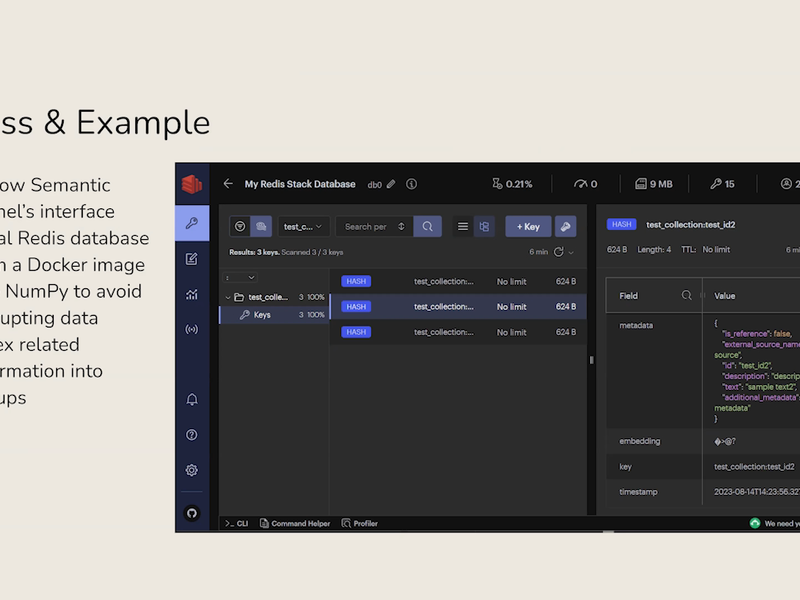Semantic Kernel mentored by Shiv Bijlani
Unmute

Semantic Kernel (SK) is a lightweight SDK enabling integration of AI Large Language Models (LLMs) with conventional programming languages. The SK extensible programming model combines natural language semantic functions, traditional code native functions, and embeddings-based memory unlocking new potential and adding value to applications with AI.
https://github.com/microsoft/semantic-kernel
Connect with us on Linkedin:
Alisha: https://www.linkedin.com/in/am831/
Sneha: https://www.linkedin.com/in/sneha-de/
Sebastian: https://www.linkedin.com/in/sebastian-santoyox5/
https://github.com/microsoft/semantic-kernel
Connect with us on Linkedin:
Alisha: https://www.linkedin.com/in/am831/
Sneha: https://www.linkedin.com/in/sneha-de/
Sebastian: https://www.linkedin.com/in/sebastian-santoyox5/
How much experience does your group have? Does the project use anything (art, music, starter kits) you didn't create?
CodeDay Labs team in the advanced track.
Alisha: I'm proficient in Python and Git. This was my first time using Python for package development, and my first time using any AI technologies.
Sneha: I have experience in Python development and working with Git. This was my first time working with AI technology such as OpenAI's GPT models.
Sebastian: I have a bit of experience in Python and Git. But I had no experience of using Semantic Kernel or AI models.
Alisha: I'm proficient in Python and Git. This was my first time using Python for package development, and my first time using any AI technologies.
Sneha: I have experience in Python development and working with Git. This was my first time working with AI technology such as OpenAI's GPT models.
Sebastian: I have a bit of experience in Python and Git. But I had no experience of using Semantic Kernel or AI models.
What challenges did you encounter?
Alisha: Integrating Google PaLM into the existing features of Semantic Kernel was challenging, because some of SK is structured around the openAI package. I had to make subjective decisions about how to handle the inconsistencies between the PaLM package and the openAI package, because I wanted the user experience to remain consistent regardless of the AI service they choose.
Sneha: One challenge I encountered was corrupted data caused by incorrect floating-point conversions, which was resolved by using NumPy.
Sebastian: One challenge I encountered was that there were multiple encode function which was an issue since the function was calling another one and failing without a good error message.
Sneha: One challenge I encountered was corrupted data caused by incorrect floating-point conversions, which was resolved by using NumPy.
Sebastian: One challenge I encountered was that there were multiple encode function which was an issue since the function was calling another one and failing without a good error message.
Made with 💖 by robots running our open-source software and GraphQL APIs.

